Macau Gambling Revenue Inches Closer to 2019 Levels, Outlook Remains Mixed
Posted on: December 2, 2024, 09:38h.
Last updated on: December 2, 2024, 09:48h.
Macau gambling revenue last month totaled 18.4 billion patacas (US$2.3 billion). The November result represents 80.4% of the $2.86 billion the six casino operators won from gamblers in prepandemic November 2019.
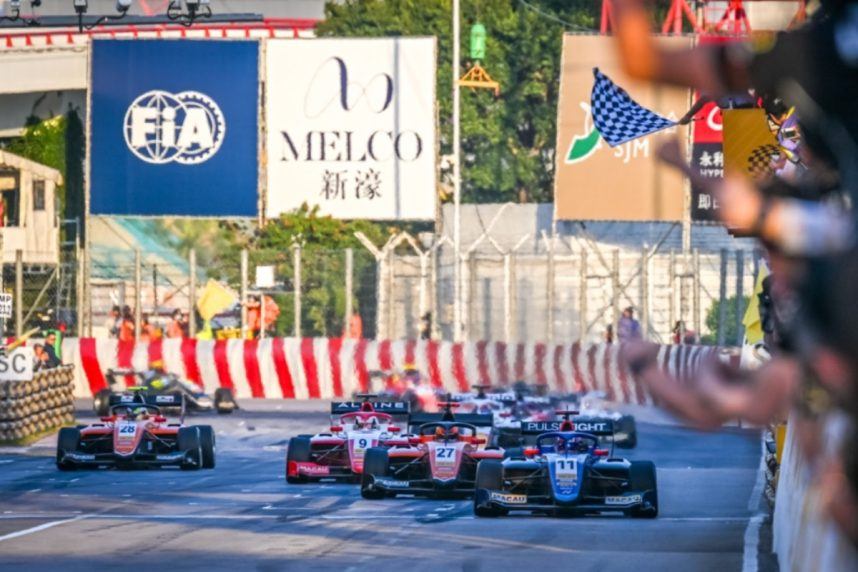
The world’s richest gaming market continues to inch closer to revenue levels experienced before the COVID-19 virus devastated the casino industry. November exceeded analyst expectations, as the 14.9% year-over-year surge outpaced the consensus forecast of a 13% improvement.
November followed the $2.6 billion won in October — the enclave’s best mark since January 2020 when the coronavirus onset began out of Wuhan. October is traditionally a busy month due to the annual Golden Week holiday.
November Wins
November marked an 11.5% month-to-month drop, but that was expected. The month is typically slower than October because there are fewer mainlanders on holiday.
November’s annual hosting of the Macau Grand Prix, a Formula Three motor race, also doesn’t do the casinos many favors. Though Las Vegas’ November hosting of a Formula One race brings many global high rollers to Southern Nevada, the Formula Three circuit doesn’t deliver the same high-value clientele for casino resorts in Macau. The race disrupts the downtown peninsula and keeps some mainland gamblers out of town during the weekend event.
However, with an extra weekend day in November 2024 compared with November 2023, Macau casinos managed to outpace forecasts. Year to date, Macau’s gambling revenue of $26 billion represents a 26.8% jump from 2023, and 77% of the $33.6 billion the casinos won in the 11 months of 2019.
Market observers reported strong guest traffic inside the resorts, though authorities will release the official November visitation count later this month.
Analysts project that December will cap off a strong year, with forecasts at 86% of December 2019, or roughly $2.45 billion.
Evolving Landscape
Macau, which before the pandemic relied on casino taxes for about 80 cents of every dollar the local government collected, has undergone great change over the past half-decade.
Sam Hou Fai will become the city’s new chief executive when he’s sworn in on December 20. Sam has said publicly he thinks it’s in Macau’s best interest to lessen its dependency on casino taxes. He plans to do so by encouraging nongaming investments to diversify the region’s economy.
Being a Special Administrative Region of China, Macau’s government looks to Beijing for policy direction. During the pandemic, Xi Jinping’s administration instructed Macau to clamp down on VIP junket groups that helped high rollers on the mainland move their money to the tax haven that is Macau to gamble.
Macau successfully prosecuted billionaire Alvin Chau, one of the junket industry’s biggest tycoons who ran the Suncity empire, and put him in prison for 18 years. Nearly all other junkets fled Macau as a result.
More recent developments, however, have been in the industry’s favor.
China continues to provide stimulus payments to most residents to boost its wavering economy. China’s National Immigration Administration also announced last week that beginning in January, residents of Hengqin will be able to travel at will in and out of Macau with no limits. Zhuhai residents will be allowed to visit the gambling hub once a week.
The immigration changes, approved by Xi’s Cabinet, are tailored to prop up South China and the Pearl River Delta economies.
Related News Articles
Macau Casinos Enjoy Best Month Since Pandemic, October Win Tops $2.4B
Macau Casinos Account for 77% of Government Taxes in 2023
Most Popular
Jackpot News Roundup: Two Major Holiday Wins at California’s Sky River Casino
PUCK, NO! Health Dept. Closes Las Vegas Wolfgang Puck Restaurant
Oakland A’s Prez Resigns, Raising Questions About Las Vegas Move
MGM Osaka to Begin Construction on Main Resort Structure in April 2025
Most Commented
-
UPDATE: Whiskey Pete’s Casino Near Las Vegas Closes
— December 20, 2024 — 33 Comments -
Zillow: Town Outside Las Vegas Named the Most Popular Retirement City in 2024
— December 26, 2024 — 31 Comments -
Caesars Virginia in Danville Now Accepting Hotel Room Reservations
— November 27, 2024 — 9 Comments -
Oakland A’s Prez Resigns, Raising Questions About Las Vegas Move
— December 27, 2024 — 9 Comments
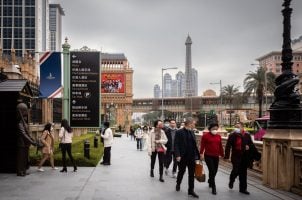
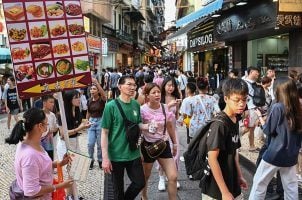
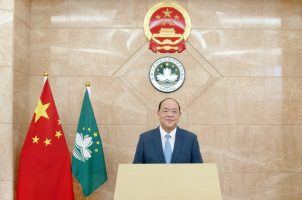












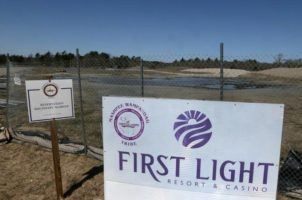
No comments yet